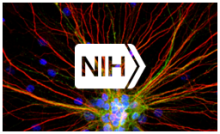
The next application deadline for the BRAIN Initiative: Exploratory Team-Research BRAIN Circuit Programs – eTeamBCP (U01 Clinical Trials Optional) is June 14, 2022.
In support of the BRAIN Initiative’s goal of understanding the circuit basis of behavior, the NIH offers a family of funding opportunities focused on “Integrated and Quantitative Approaches to Understanding Circuits” that share an overall goal of exploring the circuit basis of behavior. These notices of funding opportunities (NOFOs) include small or exploratory R34 targeted BRAIN Circuits Planning Projects (BCPP) and R01 targeted brain circuits projects (BCP) with specific research deliverables. They also include large U01 team-research BRAIN circuit programs (eTeamBCP) with exploratory aims or with extensive and elaborated goals and a 5-10 year horizon of discovery (Team BCP U19). This set of funding opportunities is designed to allow for the tackling of scientific questions at different scales and of various complexities, and to balance support for individual-lab science and team-science approaches.
RFA-NS-22-028, which has recently been reissued, provides resources for the integration of experimental, computational, and theoretical capabilities for the large-scale analysis of neural systems and circuits within the context and during the simultaneous measurement of behavior. This exploratory NOFO will support the building of teams led by three or more (and up to six) program directors/principal investigators that seek to cross boundaries of interdisciplinary collaboration by bridging fields and by linking theory, modeling, and/or data analysis to experimental design. Applications are encouraged to propose goals that can only be tackled by a synergistic team-based approach and have the potential to be transformative and/or to enable significant advances. These exploratory studies are intended for the development of experimental capabilities and/or theoretical frameworks in preparation for a future competition for larger-scale or extended efforts. The NOFO emphasizes the use of cutting-edge methods to understand the behavior of circuits at cellular and sub-second levels of spatial and temporal resolution. Diverse species or experimental systems and cross-species/comparative approaches are welcome.
Additionally, applications submitted to this reissue require a Plan for Enhancing Diverse Perspectives (PEDP). Applications without this new component will be withdrawn prior to review. The team’s PEDP will be evaluated during peer review as part of scorable criteria and used to inform funding decisions. More information on the PEDP can be found here.
If proposing a clinical trial, this NOFO will only accept basic experimental studies in which participants are prospectively assigned to experimental conditions and receive an intervention or experimental manipulation where the effect will be assessed for the purpose of understanding fundamental aspects of phenomena. Human studies with invasive (intra-cortical) recording and/or stimulating must include neuroethical considerations, such as consent of patients recruited into studies with possibility for risk beyond therapeutic standards of care without expectation of personal therapeutic benefit. Additional risks should be identified and justified as minor and manageable. Consent methodology should avoid patient coercion or therapeutic misconception.
The next application deadline for NS-22-028 is June 14, 2022. For more information, please read the full notice or contact BRAINCircuits@nih.gov.
